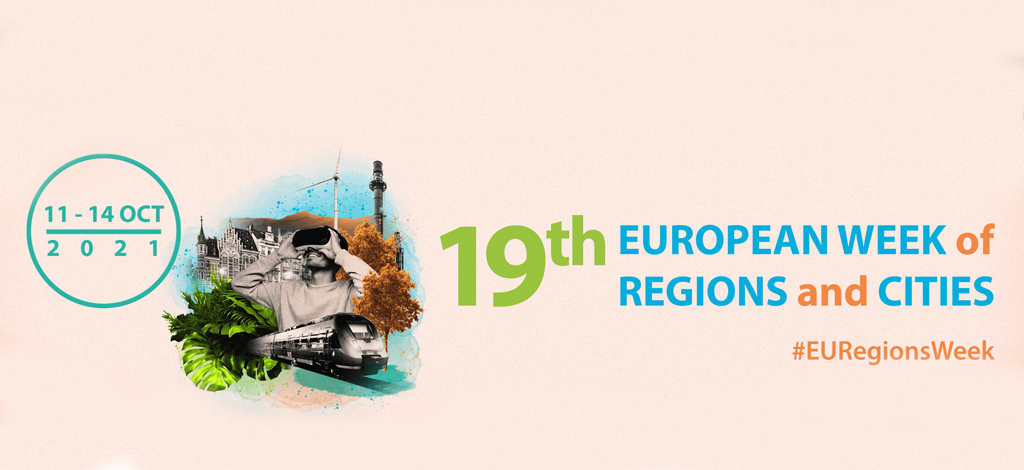European Week of Regions and Cities 2021: projects in the spotlight in the Brussels-Capital Region
Like every year, Brussels International participated in the European Week of Regions and Cities in mid-October. This was an opportunity to present to the press and the citizens of Brussels two Brussels projects that received financial aid from the European Regional Development Fund (ERDF): LagUM and the sustainable swimming-pool of Vrije Universiteit Brussel (VUB).
The European Week of Regions and Cities (#EURegionsWeek) is the largest event dedicated to European regional policy in Brussels. The event, which is organised each year, offers a unique networking and communication platform, bringing together representatives – politicians, civil servants, experts and members of academia – from cities and regions across Europe.
Over the years, EURegionsWeek has set up several actions to promote the use of EU funds to improve the daily life of EU citizens.
The programme is adapted each year to reflect the European Union’s specific priorities. For its 19th edition, the event title was “Together for recovery”, with four main themes: cohesion, green transition, digital transition and citizen engagement.
Two sustainable Brussels projects that received European aid
Brussels International, which participates each year in the European Week of Regions and Cities, settled on the theme of green transition for this 19th edition.
On 13 October 2021, Brussels International presented two Brussels projects to the press, in collaboration with DG REGIO of the European Commission and the European Committee of the Regions. LagUM and the sustainable swimming pool of Vrije Universiteit Brussel (VUB) were developed with aid from the European Regional Development Fund (ERDF) and which contribute to this green transition.
The LagUM project is a participatory action research project which focuses on soilless agriculture and which was launched by the commune of Ixelles and the Université libre de Bruxelles (ULB). The VUB’s sustainable swimming pool meanwhile encourages the development of a circular economy and the rational use of resources, with a significant social impact.
These two projects, which both focus on the theme of green transition, start from a broader vision, as they contribute to the cohesion and engagement of citizens.
The VUB’s new swimming pool, a sustainable and exemplary project
The visit of the VUB’s sustainable swimming pool was led by Helena Wittock, Head of the VUB’s Strategy and Policy Preparation Office and ERDF Project Coordinator, and Dirk van de Wiele, Head of the Sports Infrastructure Administration which is tasked with the coordination and technical monitoring of the swimming pool. After the project’s presentation, the intervention of Kristine De Martelaer, a professor of the VUB’s Department of Physical Education, added to the debate by discussing the beneficial impact of swimming and contact with water for individuals.
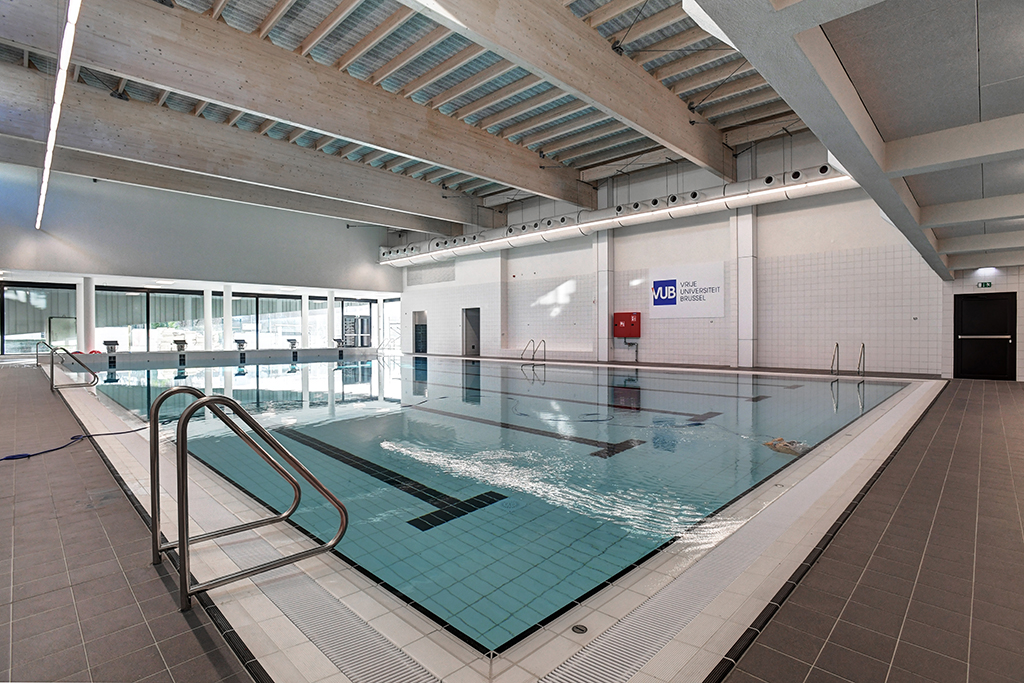
This new swimming pool aims to be exemplary, both at the energy and societal level. The compact and energy-efficient building will reduce CO2 emissions by more than 500 tons per year compared with the old swimming pool. It will thus contribute to achieving the climate objectives that were formulated by the Brussels-Capital Region and the EU.
The new sports complex, which also has a new instruction pool, means the Brussels-Capital Region now has an additional 400 m² of water for swimming lessons and recreational swimming. It thus testifies to the VUB’s societal commitment to contribute to a pleasant urban environment and promote a healthy lifestyle.
The VUB’s swimming pool is open to everyone, regardless of their age, origin and personal situation. As such, it has also developed a new initiative to teach children to swim and survive in water, called Swimove. Swimming lessons are given using pictures given the cultural diversity of the learners. The aim is to keep children swimming well into adulthood.
Finally, the pool’s versatility also offers added value for campus students who are seeking the benefits of swimming.
The space is expected to welcome approx. 130,000 visitors per year in the long term. The funding from the ERDF and the Brussels-Capital Region amounts to 2.03 million euros out of a total investment of 7.8 million euros.
L(ag)UM, a unique rooftop farm project
The LagUM market gardening project studies different agroecological practices that can be used on roofs.
This action research project was developed and co-financed by the commune of Ixelles under the Maelbeek Neighbourhood Contract and includes the development of a vegetable garden as part of its exploitation. As the project’s scientific partner, the Université libre de Bruxelles is exploring the multiple facets of urban agriculture. Refresh-xl, the project’s third partner, is in charge of growing the vegetables, as well as of the project’s social and educational dimensions.
The project is already a great success. In just one year, the farm was able to grow 48 varieties, harvesting two tonnes of vegetables.
Before their visit, the journalists were welcomed by the three partners of LagUM. Cédric Zeegers-Jourdain, representing the commune of Ixelles, gave a presentation about the project’s development. Francisco Davila, a researcher in the ULB’s Agroecology Lab, then took the floor to discuss the research aspect. Finally, Amandine Vandormael, speaking on behalf of Refresh-xl, discussed the educational work that is done to popularise the results of the research that is carried out with the ULB.
The LagUM project is an educational showcase for urban agriculture in Brussels. In addition to its 800 m² of cultivatable space on the roofs, the farm also ensures that the practices and results of the research carried out there can be widely shared.
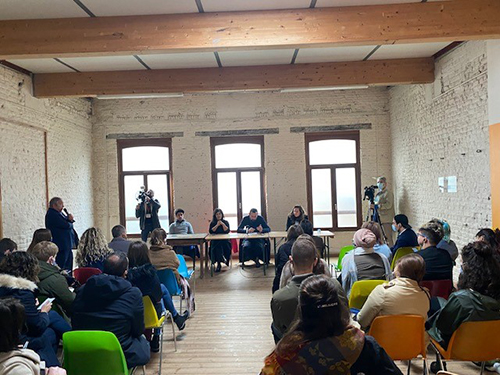 |
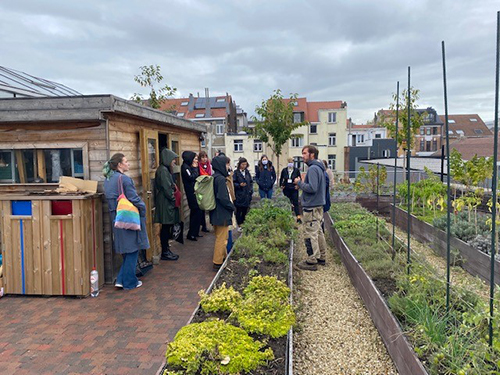 |
On the rooftop, the journalists were given a guided tour of this urban agriculture lab and given the opportunity to discover the space and harvest some vegetables themselves. The visit ended with a meal in the social restaurant of Refresh-xl, which uses the products that are grown in the rooftop farm to prepare food.
The funding from the ERDF and the Brussels-Capital Region amounts to 1.2 million euros out of a total investment of 1.6 million euros.
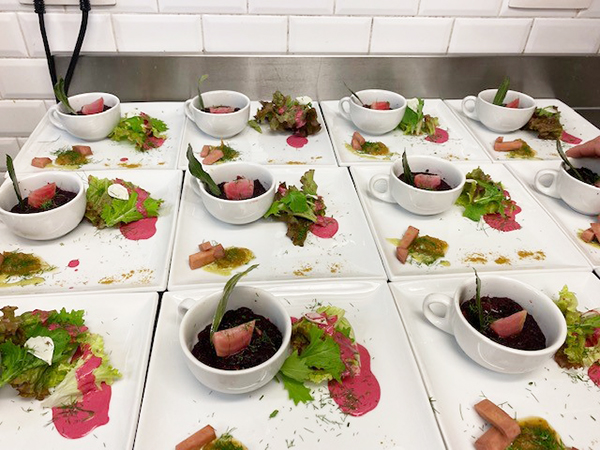 |
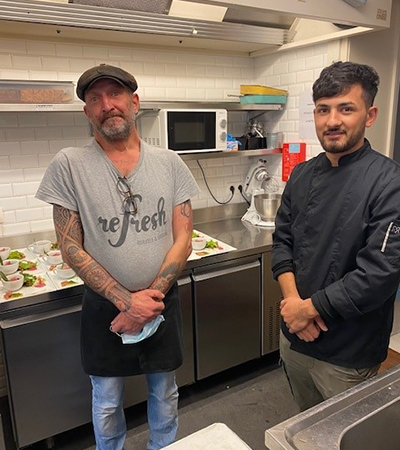 |



